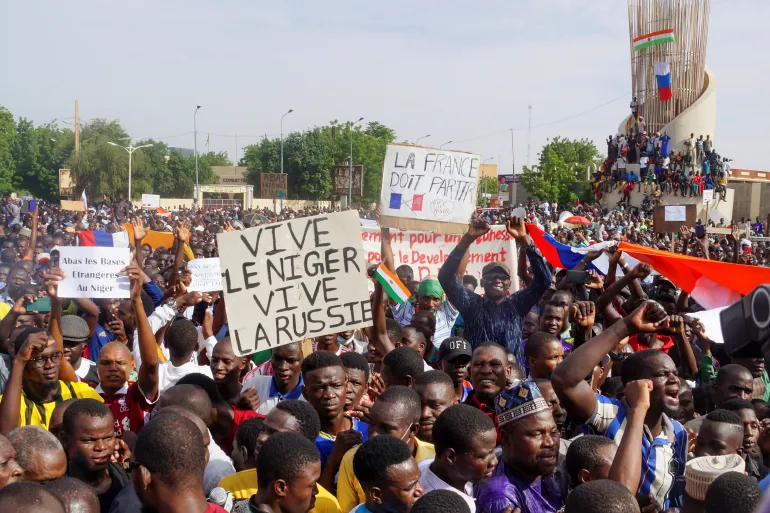Photo by [Al Jazeera]
Niger – Reducing financial assistance and imposing sanctions on Niger may cause more harm to the citizens than to the instigators of the coup d’état, Dr Mukhtar Imam, a Political Analyst from Nigeria, expressed on Salaamedia.
His opinion comes as a response to the actions taken by the European Union (EU) and the Economic Community of West African States (ECOWAS), who have decided to cut financial support and apply other sanctions to Niger, with the United States (US) also considering a similar course of action.
“Cutting aid will not, necessarily at this time, be the right decision or step in the right direction. When you look at the issue, it is akin to the issue of sanctions. When you try to cut off aid or issue sanctions, you must think along the lines of smart sanctions, not this line of thinking that Western governments and institutions are toeing. The reason being that it’s hurtful or harms the ordinary people in the state much more than it does these individuals who are holding on to power.”
Despite being the seventh largest producer of uranium, Niger remains one of the most impoverished countries globally. The World Bank reports Niger receives around $2 billion in developmental assistance annually.
Coup Resurgence on the African Continent
Numerous countries within the EU, African Union (AU), and United Nations (UN), including the US and France, have condemned the coup and emphasised the need to reinstate democratic governance.
Dr Imam asserts the current events in Niger signify a resurgence of coups across Africa. He attributes this to a “bushfire effect,” wherein multiple West African nations have experienced similar coups or attempted coups recently, notably in Mali, Burkina Faso, and Guinea.
“If you look at the trend of coups that took place across the African continent right after Independence, you will see that it happened one year after another. That’s the bushfire effect. When it happens in one country, there’s a tendency for it to occur in another country and so on. It continues to spread, and that has played out again [in West Africa].”
SMread| EFF anniversary draws crowds to FNB Stadium
The African Continent’s Fight Against Neocolonialism
Niger plays a pivotal role as a crucial ally in Western campaigns against terrorist groups and insurgents. Several military bases host personnel from various European nations, including the US and France, to support these efforts.
However, due to its history as a former French colony, many observers and citizens perceive France’s presence in Niger as primarily serving their own interests. This sentiment is particularly strong among some Niger citizens who support the coup, as they oppose the presence of foreign military forces in their country.
Dr Imam contends that France never intended to withdraw from its former colonies entirely. He believes their continued interventions and influence in West Africa have contributed to coups, attempted coups and increased anti-neocolonial rhetoric across the region.
“France has always been at the heart of everything [in its former colonies]. France has never intended to leave. The policy of Françafrique is still very much alive, from the economy, to the military sphere and to the diplomatic sphere, which is basically the political space. France has always been there, and these external interventions, this external control is the reason why we see all of these internal contradictions playing out.”
